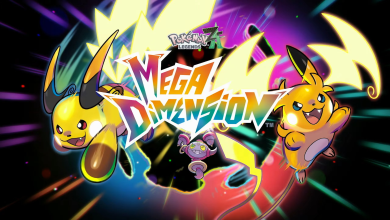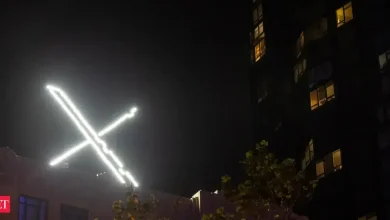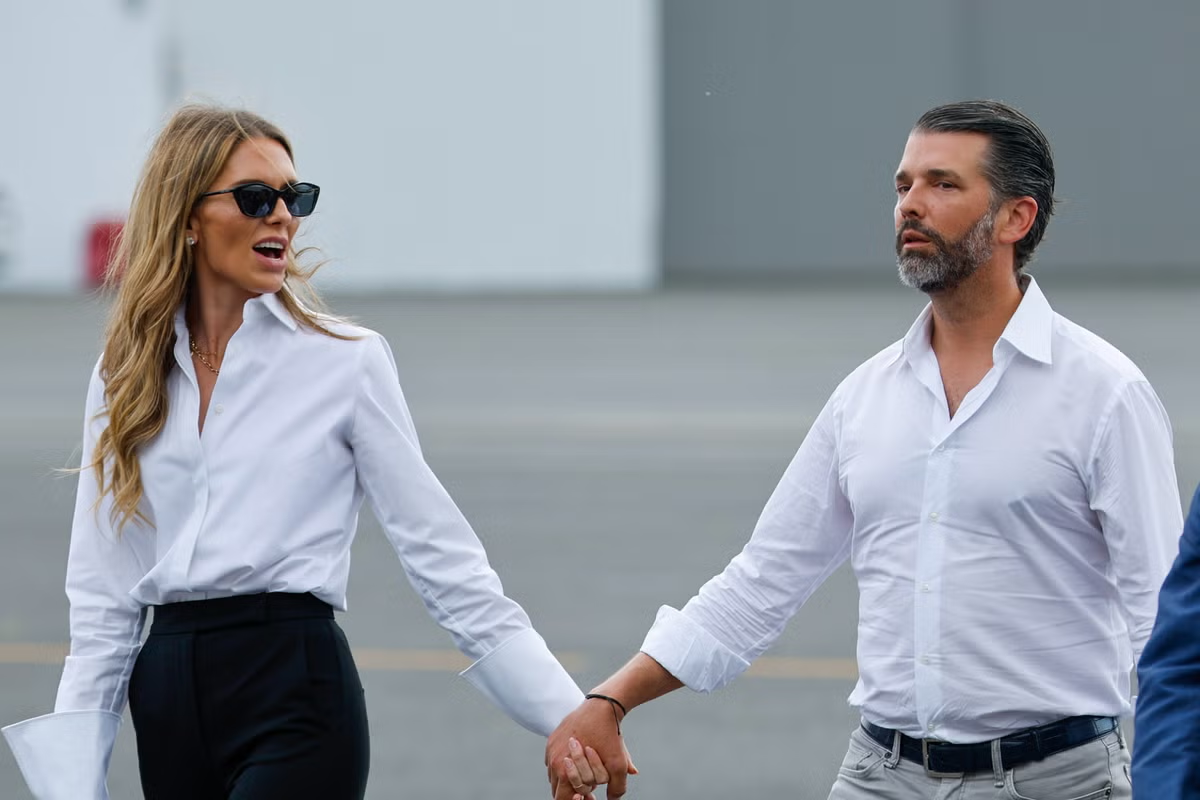The Dodgers trained hitting coach David Popkins. Now, he hopes to beat them with the Blue Jays

The Athletic has live coverage of Dodgers vs. Blue Jays in Game 1 of the World Series.
TORONTO — Before he helped revive the Toronto Blue Jays lineup with lessons from ballparks and bars, David Popkins earned entry among baseball’s best hitting minds. Before he was tasked with sparking bounce-backs, breakouts and mid-series adjustments, before he planned to stifle aces on the World Series stage, Popkins’ growing hitting addiction impressed the Los Angeles Dodgers.
They muddied job descriptions to hire him, provided daunting challenges to develop him and created a springboard to nurture him. All of it put Popkins on the trajectory to become a big league hitting coach.
Popkins began an education that formed on off days and late nights. He built a foundation around restaurant tables, tucked in bar booths with the coaches and colleagues he now opposes. Between glasses of cold beer, Popkins bounced ideas off other Dodgers development staff. Amid sips, they discussed swing mechanics, new technologies and hitting approaches.
On Friday, they’ll face off in the World Series.
“To this day,” Popkins said, “those conversations really helped mold who I am.”
When Popkins first joined the Dodgers in 2019, they presented him with a “crazy difficult challenge.” A college pitcher, Justin Washington, was attempting a transition to hitting in Los Angeles’ lowest levels. Popkins would take the lead.
Popkins had already let his big league dreams fade away. He’d spent three minor-league seasons attempting to channel his childhood hero, Tony Gwynn, punching balls the other way with a switch-hitting swing that lacked top power. He’d been released, transitioned to slugger in the independent leagues and finally looked to the next career.
Popkins worked in hitting labs and at Driveline Baseball, but then found a permanent gig. He called Robert Van Scoyoc, a private hitting instructor he’d worked with, and told him he was taking a role in the Philadelphia Phillies’ system. Van Scoyoc, who’d become the Dodgers’ hitting coach, disagreed.
“No you’re not,” Van Scoyoc said. “You’re working with us.”
The Dodgers didn’t have an open salaried position to add another coach, but Van Scoyoc wanted Popkins. They made it work, signing him to a minor-league deal as a player — one who wouldn’t appear in a single game, but would act as player-coach instead. Then they handed him Washington.
The 22-year-old had just 167 plate appearances at Savannah State. He was mainly a lanky reliever. With a long swing and thin experience, Washington met with Popkins for almost two hours every day. They tried everything, dipping into the Dodgers’ ever-growing minor-league resources. Washington hit .272 in his first minors season with an .824 OPS. His season with the young hitting coach was the best offensive year of his career. From there, Popkins’ foundation grew.
“I did become addicted to finding out why good hitters are really good,” Popkins said. “Why certain guys have really good years, it was like this puzzle.”
He spent many nights around tables with Will Rhymes, Josh Byrnes and Will Vandenberg — “equally addicted hitting minds,” Popkins said. They are now the Dodgers’ player development vice president, senior VP of baseball operations and research scientist. It’s where he met Lou Iannotti, who is now the Blue Jays’ assistant hitting coach. He worked alongside Dustin Kelly and Keith Beauregard, who are now big league hitting coaches with the Chicago Cubs and Detroit Tigers. The group, Popkins said, was hungry. The Dodgers fed them.
Popkins began to better use biomechanical swing tracking, figuring out if tweaks brought tangible results. He developed a passion for changing swings, working with rehabbing players at Los Angeles’ lowest levels. He was promoted to hitting coach at High-A Great Lakes, helping the Loons lead their division in home runs, slugging percentage and OPS. His stock, despite working with a low-minors affiliate, rose high. He received a call, asking him to interview for the Minnesota Twins hitting coach position.
“The Dodgers kind of give you the foundation to build off of,” Popkins said. “If you’re hungry, and you have a mission and drive to impact careers and try to help people, good things typically tend to happen.”
Now, on baseball’s biggest stage, the Dodgers meet Popkins once again. In his first year with the Jays, the lineup finished fourth in runs scored, fourth in wRC+ and third in OPS. They didn’t finish top-12 in any of those metrics in 2024. Toronto’s held this high-contact style for a few years. In 2025, it actually worked. George Springer went from a below-average hitter to a potential MVP vote receiver. Addison Barger, Nathan Lukes and Ernie Clement stepped into everyday roles.
It takes so many factors for that much to go right. But countless Blue Jays bats preach the progress under Toronto’s trio of hitting coaches — Hunter Mense, Iannotti and Popkins.
Springer cites the groups’ preparation and understanding of individual hitters. Daulton Varsho praises Popkins’ ability to implement quick swing fixes. Myles Straw, Ty France and Andrés Giménez all said the same thing: The day the Blue Jays acquired them, they received a call from Popkins. The edge Toronto’s hitting coaches have, Popkins said, is “everyone gives a f—.”
“You can sometimes get two guys that really give a f—,” Popkins said, “and really know what they’re talking about, really care about the players and there’s no ego. But to have three of those guys in the same place, that are equally motivated, I think that’s the part that’s rare.”
But it’s more than passion and preparation. After two games in the American League Championship Series, the Jays sat in a 2-0 hole. They’d scored just four runs across two games, their worst offensive showings of October. A dream season slipped away. Players sat in the quiet clubhouse, flipping cards across a table littered with unopened beers. Manager John Schneider stepped to the podium. The solution, Schneider said, was easy: “Do what we’ve done all year.” Make an adjustment.
The Mariners, with MLB’s fourth-most aggressive pitching staff, were too comfortable throwing in the zone. The Jays have several offensive “mindsets,” Popkins said, to float between. The grind-it-out and spray approach, clearly, wasn’t working. It was time for uppercuts.
“We had to make them a little more uncomfortable with throwing their stuff in the plate,” Popkins said. “You can do that by slugging.”
In the ALCS’ next five games, the Jays averaged 6.6 runs and two homers per contest. With Springer’s final big swing, they pushed to the World Series. Mense stood on the dugout seats, jumping alongside Clement. Popkins beamed beside Schneider, slamming his hand against the padded railing.
“Pop, Lou and Hunter do a really good job of messaging with intent,” Schneider said. “Doing it in a way that is able to be understood. So we’ve been able to make adjustments all year. We’ve been able to make mid game and game to game.”
To beat the Dodgers, Popkins and the Jays will surely require more tweaks. Blake Snell, Yoshinobu Yamamoto, Shohei Ohtani and Tyler Glasnow won’t fall easily. If Toronto topples baseball’s behemoth, it likely won’t be because of better pitching or more creative roster management. The Jays don’t have superior star power or more two-way players. But if they win the chess game of a seven-game series, with Schneider, Popkins and his staff navigating each careful move, the Jays’ offence can keep up. And if the Blue Jays’ bats earn a title, besting Popkins’ old colleagues, coaches and friends, beers can be on him.





